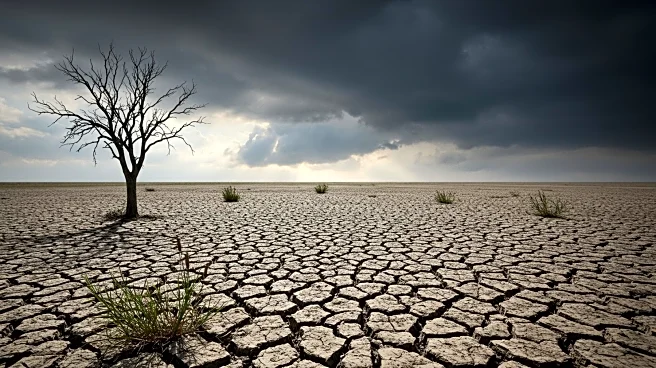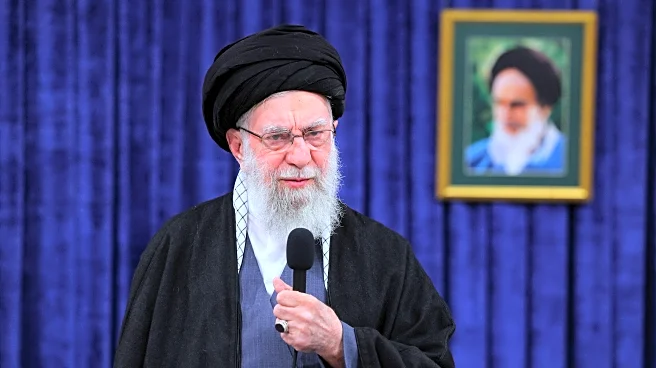What's Happening?
The Integrated Food Security Phase Classification (IPC), a leading authority on global hunger crises, has declared a famine in parts of Gaza City. This announcement comes as the region faces severe malnutrition and starvation due to ongoing military conflict and restrictions on humanitarian aid. According to the IPC, more than half a million people in Gaza are affected, with the situation expected to worsen if the conflict continues. The declaration follows months of warnings from U.N. agencies and aid groups about the dire humanitarian situation exacerbated by Israel's blockade and military actions. Reports from Gaza's Health Ministry indicate that malnutrition-related deaths have reached 281, with one in six children under five suffering from acute malnutrition.
Why It's Important?
The declaration of famine in Gaza highlights the severe humanitarian crisis affecting the region, with significant implications for international relations and humanitarian efforts. The ongoing conflict and blockade have severely restricted access to food and medical supplies, leading to widespread malnutrition and preventable deaths. This situation poses a challenge for international organizations and governments seeking to provide aid and negotiate ceasefires. The humanitarian crisis in Gaza could further strain relations between Israel and Palestine, as well as impact global perceptions of the conflict. The situation underscores the urgent need for international intervention to address the humanitarian needs and work towards a peaceful resolution.
What's Next?
The IPC warns that without a ceasefire and increased humanitarian aid, the famine could spread to other parts of Gaza, including Deir al-Balah and Khan Younis. International organizations and governments may increase pressure on Israel and Hamas to reach a ceasefire agreement and allow for the safe delivery of aid. Humanitarian groups are likely to intensify their efforts to provide food and medical assistance to the affected population. The situation may also prompt further discussions at the United Nations and other international forums to address the ongoing conflict and humanitarian crisis.
Beyond the Headlines
The famine declaration in Gaza raises ethical and legal questions about the responsibilities of warring parties to protect civilians and ensure access to humanitarian aid. The situation also highlights the long-term impact of conflict on vulnerable populations, particularly children and the elderly. The crisis may lead to increased advocacy for changes in international law regarding blockades and the protection of civilians in conflict zones. Additionally, the famine could have cultural implications, as it affects the social fabric and resilience of communities in Gaza.











